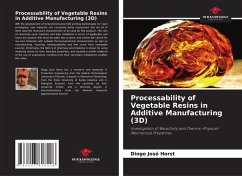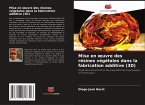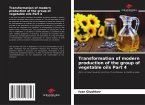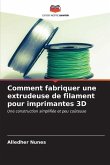With the development of three-dimensional (3D) printing technologies for rapid prototyping, new materials are constantly being researched, but not all of them have the necessary characteristics to be used for this purpose. The cost of commonly used materials and their limitations in terms of application and reuse are aspects that must be taken into account, and involve the search for low-cost materials with suitable thermomechanical characteristics as well as manufacturing, recycling, biodegradability and that come from renewable sources. Empirically, the history of pharmacy and medicine is known for using medicinal plants for their bioactive properties, and recently scientific evidence of the use of substances resulting from their secondary metabolism justifies this claim.
Bitte wählen Sie Ihr Anliegen aus.
Rechnungen
Retourenschein anfordern
Bestellstatus
Storno








